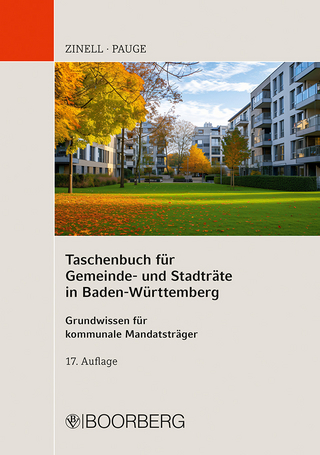
Law's Regulatory Relevance?
Property, Power and Market Economies
Seiten
2017
Edward Elgar Publishing Ltd (Verlag)
978-1-78536-452-5 (ISBN)
Edward Elgar Publishing Ltd (Verlag)
978-1-78536-452-5 (ISBN)
Focusing on the information economy, free trade exploitation, and confronting terrorist violence, Mark Findlay critiques law's regulatory commodification. Conventional legal regulatory modes such as theft and intellectual property are being challenged by waves of property access and use, which demand the rethinking of property 'rights' and their relationships with the law.
Law's Regulatory Relevance? theorises how the law should reposition itself in order to help rather than hinder new pathways of market power, by confronting the dominant neo-liberal economic model that values property through scarcity. With in-depth analysis of empirical case studies, the author explores how law is returning to its communal utility in strengthening social ties, which will in turn restore property as social relations rather than market commodities. In a world of contested narratives about property valuing, law needs to ground its inherent regulatory relevance in the ordering of social change.
This book is an essential read for students of law and regulation wanting to explore the contemporary dissent against neo-liberal market economies and the issues of communitarian governance and social resistance. It will also appeal to policy makers interested in law's failing regulatory capacity, particularly through criminalising attacks on conventional property rights, by offering insights into why law's regulatory relevance is at a cross-roads.
Law's Regulatory Relevance? theorises how the law should reposition itself in order to help rather than hinder new pathways of market power, by confronting the dominant neo-liberal economic model that values property through scarcity. With in-depth analysis of empirical case studies, the author explores how law is returning to its communal utility in strengthening social ties, which will in turn restore property as social relations rather than market commodities. In a world of contested narratives about property valuing, law needs to ground its inherent regulatory relevance in the ordering of social change.
This book is an essential read for students of law and regulation wanting to explore the contemporary dissent against neo-liberal market economies and the issues of communitarian governance and social resistance. It will also appeal to policy makers interested in law's failing regulatory capacity, particularly through criminalising attacks on conventional property rights, by offering insights into why law's regulatory relevance is at a cross-roads.
Mark Findlay, Honorary Senior Fellow, British Institute of International and Comparative Law, UK and previously Director, Centre for AI and Data Governance, Singapore Management University, Singapore
Contents: Preface 1. Law and the New Normal: Reimagining Property 2. Criminalising Property 3. Liberating Property 4. Property Bonded 5. Property Resisted 6. Re-embedding Original Property through Repositioned Law 7. Property as the Social Bibliography Index
| Erscheinungsdatum | 01.02.2018 |
|---|---|
| Verlagsort | Cheltenham |
| Sprache | englisch |
| Maße | 156 x 234 mm |
| Themenwelt | Recht / Steuern ► EU / Internationales Recht |
| Recht / Steuern ► Öffentliches Recht | |
| Sozialwissenschaften ► Politik / Verwaltung ► Staat / Verwaltung | |
| ISBN-10 | 1-78536-452-9 / 1785364529 |
| ISBN-13 | 978-1-78536-452-5 / 9781785364525 |
| Zustand | Neuware |
| Haben Sie eine Frage zum Produkt? |
Mehr entdecken
aus dem Bereich
aus dem Bereich
Organisationen steuern, Strukturen schaffen, Prozesse gestalten
Buch | Softcover (2024)
Rehm Verlag
38,00 €
Buch (2024)
Richard Boorberg Verlag
19,00 €


